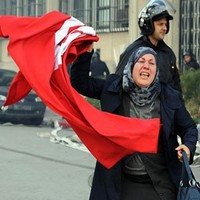Editor’s note: This is the first in a two-part series examining the crisis of the global middle class. Part I will examine the challenges facing the global middle class and the implications for international politics. Part II will examine ways to strengthen the global middle class and avoid the potential dangers of economic polarization.
When Mohammed Bouazizi, a Tunisian street vendor, set himself on fire outside a local government office in December 2010, his desperate act set off an unexpected yet wide-ranging chain reaction throughout the region. Demonstrations that broke out in his small town spread all the way to the capital, Tunis, ultimately bringing former President Zine el-Abidine Ben Ali’s 23-year rule to an end. In Egypt, demonstrators soon filled Cairo’s Tahrir Square, eventually overthrowing the 40-year reign of former President Hosni Mubarak. Other authoritarian leaders fell after decades in power in Libya and Yemen. One of the last holdouts from the Arab Spring, Syria is now on the verge of collapse, mired in an unwinnable civil war.
Historically, political upheaval on such a scale, in such a short period of time and over such a large area has usually resulted either from the spread of revolutionary ideologies or outright war. Fascism reached its apex during World War II, while democracy and communism remade the world map during the Cold War. Before that, land armies fought across Asia, the Middle East and Europe while navies contested the world’s oceans throughout the age of empires.

